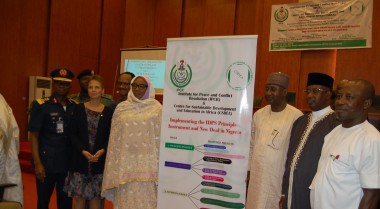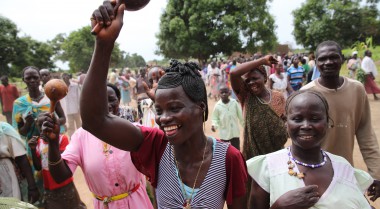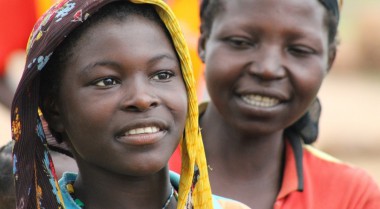
How the New Deal can help to address the challenges of conflict in Nigeria (and what’s Germany got to do with it)
Nigeria, with a population of approximately 186 million people, has been experiencing various forms of conflict since independence in 1960. These conflicts include struggle over control of oil and gas resources, dispute over communal land ownership, conflict between pastoralists and farmers, ethnic and religious divisions and violent extremism.
The International Dialogue for Peacebuilding and Statebuilding (IDPS) and its New Deal is a great opportunity to address these challenges of conflict in Nigeria holistically: The New Deal is a key agreement between fragile and conflict affected states, international development partners and civil society to improve current development policy and practice. The New Deal sets out five Peace- and Statebuilding Goals (PSGs) to give clarity on the priorities in fragile and conflict-affected states. In essence, the New Deal is about building and maintaining honest, respectful and mutually accountable relationships and trust, not only between the international community and conflict-affected states, but also and more importantly between them and the people they serve.
The realization of sustainable peace and development in Nigeria will not only ensure that Nigeria becomes a peaceful state with a stable economy, but it will also enhance stability and peacebuilding in the region and the whole of Africa.
The conflicts in Nigeria not only affect the internal structures, but also the whole region. The militancy in North East Nigeria has troubled neighbouring Lake Chad Basin countries of Cameroun, Chad and Niger. Given the strategic role of Nigeria in West Africa/Sahel and in Africa – every sixth African is reported to be a Nigerian –, the implementation of the New Deal and the IDPS principles seems all the more important. The realization of sustainable peace and development in Nigeria will not only ensure that Nigeria becomes a peaceful state with a stable economy, but it will also enhance stability and peacebuilding in the region and the whole of Africa.
Under the Nigeria IDPS platform the Nigerian government, civil society and donors have set out priorities to ensure the implementation of the New Deal. These priorities include inter-religious dialogue as well as inter and intra party dialogue; political enlightenment for equal participation of women in (international) politics in order to integrate women into all political processes (UNSCR 1325); mainstreaming Youth in peacebuilding (UNSCR 2250); training of peace management organizations (PMOs); establishing an early warning & early response centre and network, integrated skills acquisition programmes; integrated micro finance; citizen participation in local government governance; revenue generation and accountability training for local governments; establishment of peace commissions in all the 36 states of Nigeria; peace education for secondary schools and formation of peace clubs in schools; rehabilitation and reintegration of conflict-affected returnees and decongesting prisons.
However, challenges exist partly due to the multi-ethnic nature of the Nigerian state that saw the amalgamation of around 250 ethnic groups into an assumed homogenous entity. But creating a Nigerian national identity including 250 ethnic groups is very difficult. This idealistic nature of the Nigerian state requires further initiatives to ensure unity (but not enforced conformity) and peaceful co-existence.
Despite the Federal Character Principle (FCP) and Quota System (QS) – rules which were initiated by the General Yakubu Gowon led administration during and after the Nigerian civil war that took place from 1967 to 1970 – there is still discontent and competition amongst and within several groups about power and resources. The Federal Character Principle and Quota System were put in place to ensure that no single ethnic group dominates public positions – a spreading phenomenon, which triggered the civil war.
The FCP and QS have helped Nigeria to make progress in terms of ensuring cessation of hostilities and supported some level of relative peace in some parts of Nigeria. However, it has been criticized for securing the interests of the ethnic elites and neglecting the yearnings of civil society, especially minorities within ethnic and religious groups. To see possible ways of bridging those identified gaps will be a key area of the Nigerian IDPS platform, in order to ensure an inclusive implementation of the New Deal. There is the need for strategic international support to ensure that the additional and long-term technical and funding support for the New Deal focus areas will be achieved.
More specifically, the German community can also support the Youth component of the IDPS/New Deal implementation within the context of UNSCR 2250. Young people are mostly used to perpetuate violence. Investing in them and harnessing their positive potentials for peace is essential. To prevent violent extremism in Nigeria effectively, the youth must be equipped with peace tenets, civic education and economic opportunities to enable them to express their talents positively, leading to sustainable peace and development.
By Theophilus Ekpon, Executive Director of the Centre for Sustainable Development and Education in Africa (CSDEA) and CSPPS Focal Point in Nigeria



